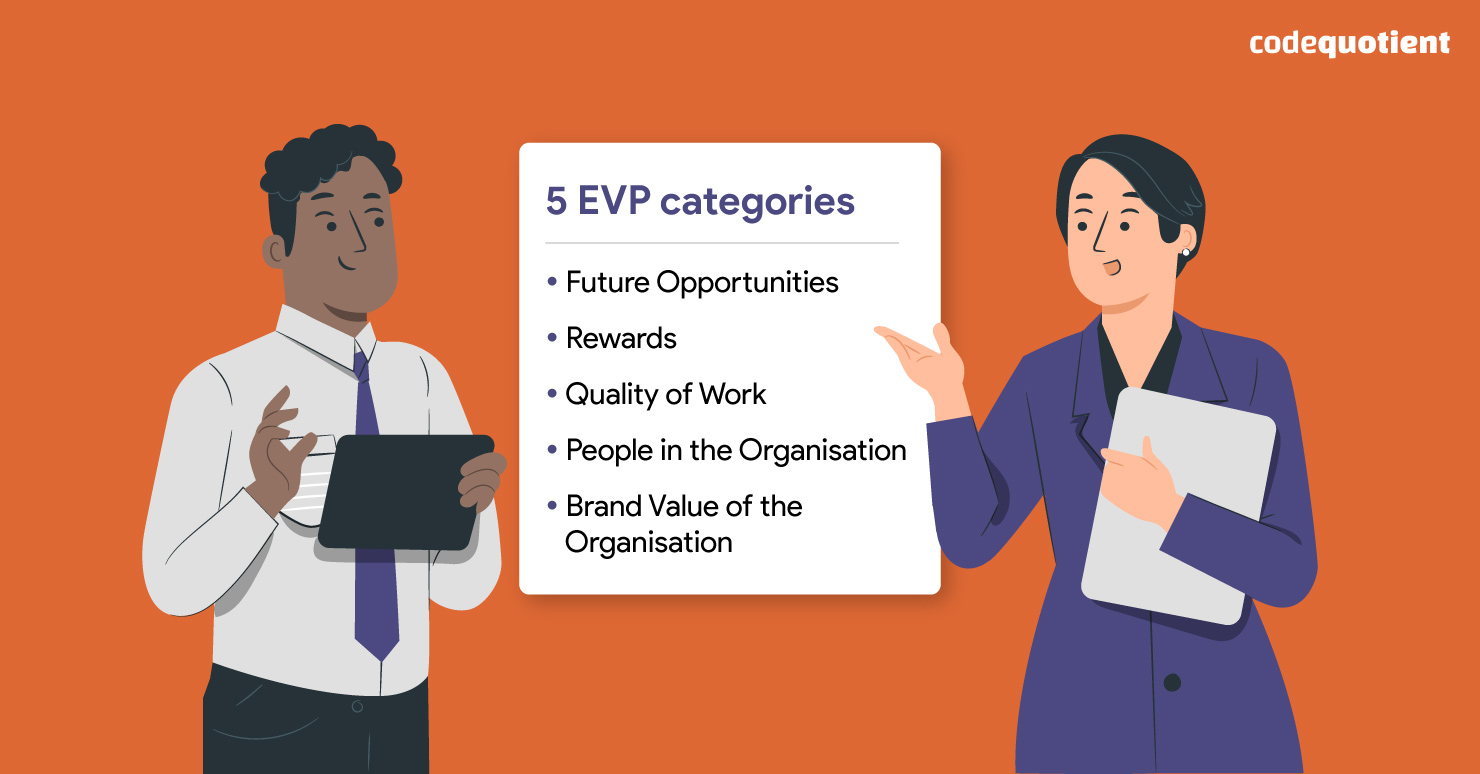When you talk about Employee Value Propositions, you promise your staff fancy cuisines, TT and foosball tables, maybe pets on campus, and many more. In a nutshell, you promote a positive, healthy work environment that feeds them both mentally and professionally.
The pandemic, on the other hand, has forced us to reconsider our priorities. Employees’ expectations have shifted within their workplaces.
Your first instinct might be that a prospective employee’s most essential consideration is money. However, the wage is merely one component of an overall Employee Value Proposition (EVP). This is especially true in today’s fast-paced environment when the Covid-19 epidemic has transformed the employee-employer relationship considerably.
First and Foremost, What Are EVPs?
Simply said, these are a set of characteristics that distinguish you. According to a recent Gartner analysis, EVPs may help you reach 50% deeper into the labour market and attract passive prospects, as well as reduce the compensation premium required to hire quality candidates by 50%. Your EVPs determine your working connection with your staff during this moment of disruption.
How to Determine Key EVPs Post-pandemic?

The five EVP categories that any IT professional would be concerned about include:
- Future Opportunities
- Rewards
- Quality of Work
- People in the Organisation
- Brand Value of the Organisation
However, during the pandemic, most professionals’ primary worry has remained EVP income and remuneration. There’s a chance that firms will go through the second round of cost-cutting, impacting employees’ salaries even more. Employees are unsure whether their organisation will have their best interests at heart as they reopen and recover, because bonuses, appraisals, increments, and ESOP plans all fall under this category.
People are least interested in “organisation” (mainly the brand) and prioritise “work” among EVPs as a result of the epidemic. This is because the pandemic’s troubles are far from over, and organisations continue to implement cost-cutting measures.
“Health and medical” and “learning and development” are two value propositions for IT professionals that have grown significantly. What this represents is security, both mentally and professionally.
As we go on to resetting and rebuilding business models for the new normal, IT talent, in particular, is expecting their leadership to specify how each employee’s safety and professional growth will be addressed.
Some Suggestions for Healthy EVPs:
- More direction is needed. Employees must be encouraged to be optimistic about EVP subjects, and any negative sentiment in teams must be minimised.
- Create a holistic workplace culture and experience for your employees. You can do so by empathising with the values that your colleagues hold dear.
- Schedule regular check-ins to learn about their difficulties and what they value in your organisation.
- Because “pay and compensation” EVP has become even more essential for IT professionals during the pandemic disruption, you must remain truthful in your communications.
- Update pay and benefit rules and practices to build trust and confidence in your working relationship with your employees.
Key Steps in Creating a Better EVP:
Here are some critical steps that company leaders can take to develop their new post-pandemic EVP:
- Construct stronger bonds– Integrating inclusion goals into day-to-day work and talent processes, focusing on direct family benefits that align with an employee and organisational needs, and teaching managers how to detect employees’ trust through empathetic discussions.
- Allow extreme flexibility– Promote open work culture, let the employees make choices within team-defined parameters, clarify which actions inside a position can be flexible, and develop manager-tested flexibility solutions.
- Create possibilities for personal growth– Employees can be empowered to facilitate development that matches their individual needs by providing them with objective career coaches.
- Ensure holistic well-being- By holding people accountable for personalised well-being, individual progress, encouraging mental health champions to have open and honest conversations about mental health, and defining clear do’s and don’ts for how managers can support employee wellness.
Let’s Keep This in Mind!
The pandemic has caused many people to reconsider what they want from their careers, from more flexibility to better alignment with their beliefs. Furthermore, given the current uncertainties, addressing employees’ concerns has become extremely crucial, which is why EVP changes should be your top focus as we go forward on the road to recovery.
At CodeQuotient, we are dedicated to providing students with industry-ready training in new software technologies. Our cost structure is, well, completely free, and is designed to allow a larger student community to improve their skills. We believe that businesses require plug-and-play personnel to meet their needs.
Please contact us at info@codequotient.com to learn more about how we can help you with your Employee Value Propositions. Feel free to contact us for additional details.




